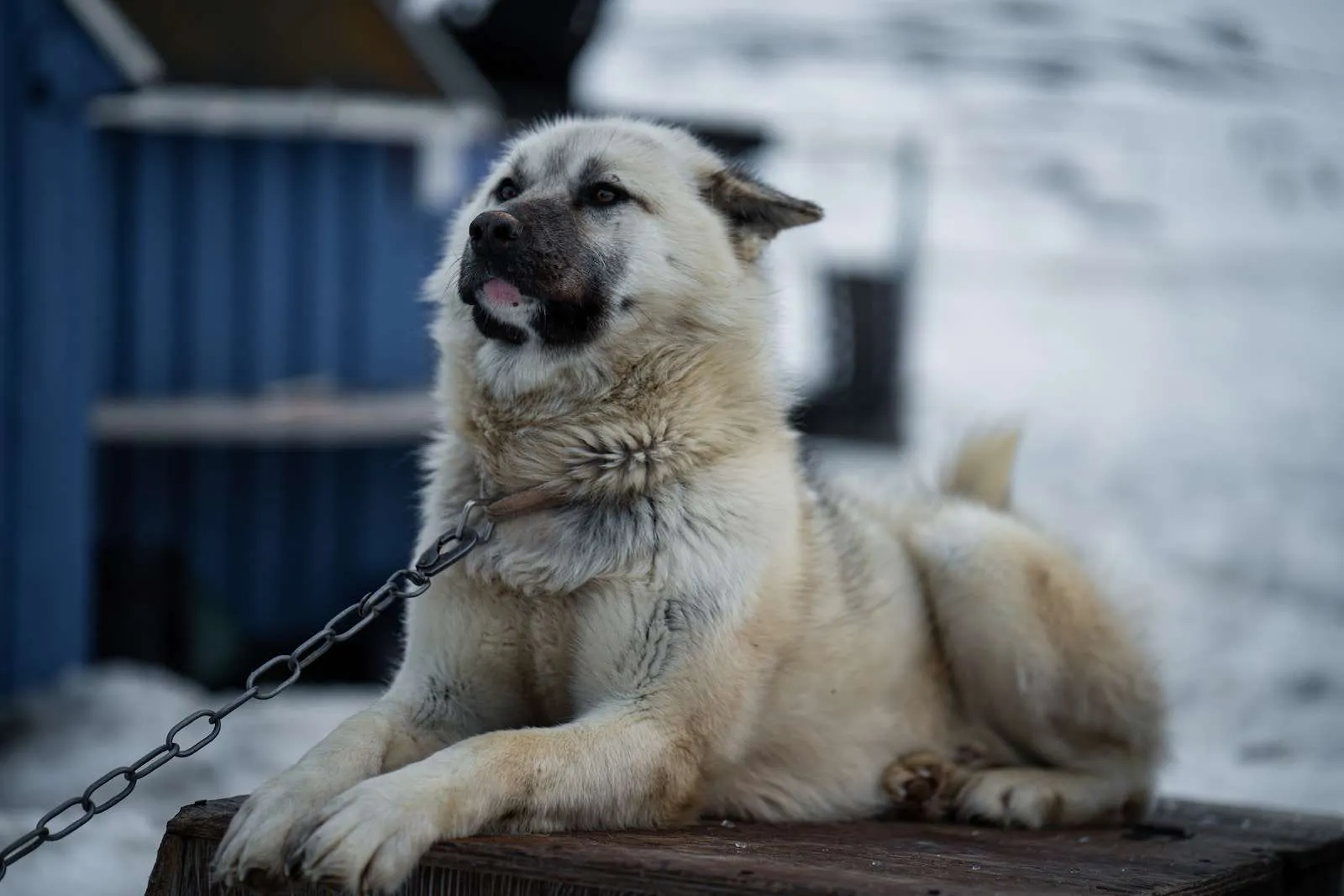Statistics:
- Height: 6 to 9 inches
- Weight: 5 to 12 pounds
- Life Span: 10 to 15 years
- Diet: Omnivorous (commercial dog food)
Chorkie Overview:
The Chorkie is a hybrid breed that results from the combination of the Yorkshire Terrier and the Chihuahua. This breed is known for its tiny size, spirited attitude, and a lavish coat that boasts characteristics from both parent breeds. As designer dogs, Chorkies have gained significant popularity over the years, mainly due to their charming appearance and the lively temperament they bring to households.
Chorkies display a variety of looks, sometimes inheriting the long, silky fur of the Yorkshire Terrier or the short, sleek coat of the Chihuahua. Their small size makes them excellent companions for apartment living. However, their lively and sometimes stubborn nature means they might not be suitable for everyone, especially families with very young children.
Chorkie Highlights:
Chorkies are best known for their vibrant personalities. Despite their small stature, they often behave as though they’re the biggest dogs in the room, exhibiting a lively and sometimes feisty temperament. They have a notorious playful streak and can be incredibly affectionate with their families.
One of the reasons the Chorkie has risen in popularity is its adaptability. This breed can thrive in various settings, from spacious homes to compact apartments. However, their high energy levels and alertness make them excellent watchdogs, sometimes a bit too excellent as they can be quite vocal, especially when strangers are near.
Chorkie Evolution and History:
The Chorkie, like many designer breeds, doesn’t have a long-standing history. They began to make appearances in the 1990s, mainly in the United States. The aim was to merge the best characteristics of the Yorkshire Terrier and the Chihuahua. Given the distinct personalities and looks of both breeds, the result was an unpredictable yet charming mix.
With the increasing popularity of designer breeds, the Chorkie quickly became a favorite for many families and individuals. They were sought after not only for their appearance but also for their distinctive personalities that made them stand out from other small dog breeds.
Chorkie Size and Weight:
Chorkies are small-sized dogs, but their weight and size can vary depending on which parent breed they take after more. Typically, they stand at about 6 to 9 inches tall at the shoulder. In terms of weight, most Chorkies will weigh between 5 to 12 pounds, with some exceptions based on diet and exercise.
It’s essential to note that due to their small size, Chorkies can be more susceptible to injuries from rough play or accidental falls. As such, they should be handled with care, especially around children who might not understand the need to be gentle with them.
Chorkie Personality:
The Chorkie is an energetic and spirited dog. They’re known for their lively nature, always eager to play and engage in activities. This vivacity stems from both parent breeds, with the Yorkshire Terrier’s spunk and the Chihuahua’s zest for life. However, this energy comes with a hint of stubbornness. Chorkies can sometimes exhibit a streak of independence, making training a bit of a challenge.
While they are loving and often form deep bonds with their family members, they can be wary of strangers. Early socialization is crucial to ensure they grow up to be well-rounded dogs. They’re also known for their vocal nature, barking at unfamiliar sounds or sights, making them excellent alert dogs.
The Adaptability of the Chorkie:
Chorkies are highly adaptable dogs, which is one of the reasons they’re favored by many urban dwellers. Their small size makes them suitable for apartment living, and they don’t require large yards to roam. However, they’re sensitive to extreme weather conditions due to their size and coat. It’s vital to protect them from excessive cold or heat.
Their adaptability also extends to their living conditions. Whether in a bustling city or a quiet countryside home, Chorkies can adjust as long as they receive enough attention and care from their owners.
Chorkie Temperament:
Chorkies are bubbly and affectionate, often displaying a cheerful disposition. They have a natural curiosity that drives them to explore their surroundings, making them quite active indoors. However, like many small breeds, they can develop “small dog syndrome” if not trained and socialized properly. This can lead to behaviors like unnecessary barking, guarding, or even aggressiveness.
It’s essential to approach their training with consistency and patience. Positive reinforcement methods work best for this breed. Given their strong bond with family members, they can be protective, which adds to their watchdog capabilities.
Chorkie Maintenance and Grooming:
Depending on the type of coat your Chorkie inherits, grooming needs may vary. If they have the longer, silky fur of the Yorkshire Terrier, regular brushing will be required to prevent tangles and mats. On the other hand, those with the short coat of a Chihuahua might need less frequent grooming but will benefit from regular brushing to distribute natural oils and remove loose fur.
Bathing should be done as needed, usually once a month or when the dog gets particularly dirty. Regular checks on their ears for signs of infection, trimming their nails, and brushing their teeth should also be part of their grooming routine.
The Trainability of the Chorkie:
Training a Chorkie can be both a rewarding and challenging experience. Their intelligence means they pick up on commands quickly, but their independent streak can sometimes make them a bit stubborn. Early socialization and puppy training classes can be beneficial.
Positive reinforcement methods, such as treats and praises, work best for Chorkies. It’s essential to establish leadership early on to prevent any dominance issues or the development of the “small dog syndrome.”
Exercise Needs of the Chorkie:
While Chorkies are energetic and active, their small size means they don’t require extensive exercise routines. Daily walks combined with indoor playtime should suffice to keep them physically and mentally stimulated.
However, due to their curious nature, it’s a good idea to offer them various toys and occasionally introduce new activities or environments to explore. Without adequate stimulation, they might resort to destructive behaviors out of boredom.
Chorkie Health:
Chorkies, as with all breeds, can have certain health issues. While they’re generally healthy, being aware of potential problems is crucial for potential owners.
- Hypoglycemia: Common in small breeds, this is a condition where blood sugar drops to dangerously low levels. Symptoms include weakness, confusion, and seizures. Regular feeding and monitoring are essential.
- Patellar Luxation: This condition involves the kneecap slipping out of its natural position. It can lead to lameness or an abnormal gait. Surgery might be required in severe cases.
- Dental Issues: Due to their small mouths, Chorkies can be prone to dental problems. Regular dental check-ups and brushing can help prevent these issues.
Chorkie Care:
Taking care of a Chorkie involves regular health check-ups, a balanced diet, and proper grooming. Ensuring they receive the right amount of exercise and mental stimulation is also key. They need human interaction and shouldn’t be left alone for extended periods, as they can develop separation anxiety.
Particular attention must be paid to their size, making sure they are not put in situations where they can be injured, such as rough play with larger dogs or being dropped by young children.
Chorkie Feeding:
Chorkies should be fed a high-quality dog food that’s suitable for their particular age, size, and energy levels. Since they are prone to obesity, monitoring their diet and ensuring they’re not overfed is crucial. They usually require about half a cup to one cup of food a day, divided into two meals.
Treats can be used for training but should be given in moderation. Fresh water should always be available, and any sudden changes in diet should be done gradually to prevent digestive issues.
Chorkie Coat Color and Grooming:
The Chorkie’s coat can be a mix of colors, ranging from black, brown, cream, or a combination of these. As mentioned earlier, their grooming needs depend on the type of coat they inherit from their parent breeds. Regular brushing and occasional baths will keep their coat healthy and clean.
In addition to the coat, attention should be given to other aspects of grooming such as nail trimming, ear cleaning, and dental care, to ensure overall health and hygiene.
Chorkie and Children:
Chorkies can make wonderful companions for families with children, particularly those who are older and understand how to handle small dogs gently. Their playful and energetic nature can be a great match for active kids.
However, due to their small size, they can be easily injured by rough handling or accidental falls. Families with very young children should supervise interactions to ensure both the child and the dog remain safe and happy.
Chorkie and Other Pets:
Chorkies generally get along well with other dogs and even cats, especially if they are raised together. Their social nature allows them to adapt to multi-pet households. However, care should be taken with larger dogs, as the Chorkie’s small size puts them at risk of injury.
Early socialization and proper introductions can ease any tensions and lead to harmonious relationships between pets.
Similar Dogs:
- Yorkshire Terrier: The Yorkie is one of the Chorkie’s parent breeds, sharing the same elegant appearance and lively personality. Their size and care requirements are very similar.
- Chihuahua: As the other parent breed, the Chihuahua shares the Chorkie’s small size and spunky disposition. They also share similar grooming and exercise needs.
- Morkie (Maltese & Yorkshire Terrier mix): The Morkie is similar to the Chorkie in size, appearance, and temperament. They are both hybrid breeds that share the Yorkshire Terrier parentage, resulting in similar coat types and care requirements.

